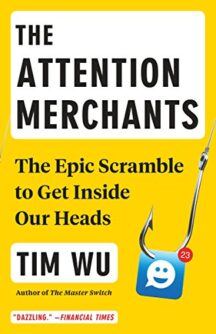
High-profile political consultant and Louisiana State University (LSU) professor James Carville suggested that “bold foundation leaders to move immediately to stand up a familiar wartime strategy and call upon our most talented communications minds to show the same valor as the doctors and nurses fighting on the front lines” of the war against the coronavirus in The Chronicle of Philanthropy yesterday.
Carville, a quite-spirited Democrat who made his name helping Bill Clinton become president, helpfully included a list of some selected foundation leaders, by name—“just to add a little peer pressure to this call to action,” he says. And he specifically cited the Committee on Public Information, created in 1917 by President Woodrow Wilson just as World War I was starting, as a model to be replicated—to use “foundation-ese” that Carville didn’t, but might have.
Wilson tapped journalist George Creel to run the Committee on Public Information. According to Columbia Law School professor Tim Wu’s entertaining and insightful history of the advertising industry in 2016, The Attention Merchants: The Epic Scramble to Get Inside Our Heads, “Creel proposed to Wilson that the administration should adopt a ‘progressive’ alternative to wartime press censorship. He argued that the United States could use modern scientific advertising techniques to ‘arouse ardor and enthusiasm’ for the war.” Experts.
Carville cites fellow LSU professor John Maxwell Hamilton in passing as noting that Creel’s “committee was guilty of excesses, including the suppression of unwanted political views, but it was highly successful ….” Allowable excesses.
According to sociologist Robert Nisbet in his The Present Age: Progress and Anarchy in Modern America in 1988, the Creel Committee “turned out almost immediately to be an agency of war psychology, morale, patriotism, and vigilance against any excess of free thought in the country.” Unallowable excesses, in this case.
Wu—who coined and helped popularize the term “net neutrality” and served in the Obama administration—writes that Creel would take the authority given him by Wilson “and run with it, going to extremes that must be described as alarming.” Alarming.
In 1916, according to Wu, “Wilson had just won reelection on a neutrality platform, which Creel had explained and justified in a bestseller published during the campaign entitled Wilson and the Issues. There was no stronger case for staying out than the one these two men had made.” (Footnote omitted.)
“Nonetheless, when Wilson changed his view, George Creel underwent the kind of abrupt reversal that only certain men infinitely glad to be of use could manage,” Wu continues.
Wu traces Benito Mussolini's later words and Leni Riefenstahl’s later work to Creel’s. Until they came along, though, “Creel was alone in hailing the fascist virtue of ‘weld[ing] the people of the United States into one white-hot mass instinct with fraternity, devotion, courage, and deathless determination.’” (Brackets in original.)
Wu then says, of course, “To be fair, Creel’s nationalism and his conception of a ‘war-will’ was a far cry from the more malevolent string that would arise later”—calling Creel “a second-rate fascist,” but a propagandist “of the first rank.”
“The preservation of morale itself became an aim,” according to author and historian John M. Barry’s description of the Creel Committee, in his 2004 history of the 1918 flu pandemic, interestingly—The Great Influenza: The Epic Story of the Deadliest Pandemic in History. Interestingly and concerningly, actually, though apparently not so much to give Carville pause.
“For if morale faltered, all else might as well,” Barry continues.
So free speech trembled. More than in the McCarthy period, more than during World War II itself, more than in the Civil War—when Lincoln was routinely vilified by opponents—free speech trembled indeed. The government had the two hundred thousand members of the American Protective League, who reported to the Justice Department’s new internal security agency headed by J. Edgar Hoover and spied on neighbors and coworkers. Creel’s organization advised citizens, “Call the bluff of anyone who says he has ‘inside information.’ Tell him that it’s his patriotic duty to help you find the source of what he’s saying. If you find a disloyal person in your search, give his name to the Department of Justice in Washington and tell them where to find him.”
Creel defended his committee’s work in a 1920 memoir, How We Advertised America.
Progressive New Republic co-founder Walter Lippmann worked for the Creel Committee, Wu reports, “and witnessed firsthand its power to whip the country into a fanatical assent. Despite his own initial support of the war, the ease with which the Creel Committee had so expertly succeeded turned him into something of a lifelong cynic.”
Didn’t Carville himself used to be able to easily muster some spirited cynicism? Perhaps he should have mustered some here, or at least a small excess of skepticism. He didn’t, but might have. A little alarming, really.
Foundation leaders—bold or not, named by him or not—should perhaps just politely decline his suggestion and direct their interests and concerns, and their influence over grantmaking, to other potential options in addressing the current coronavirus crisis.